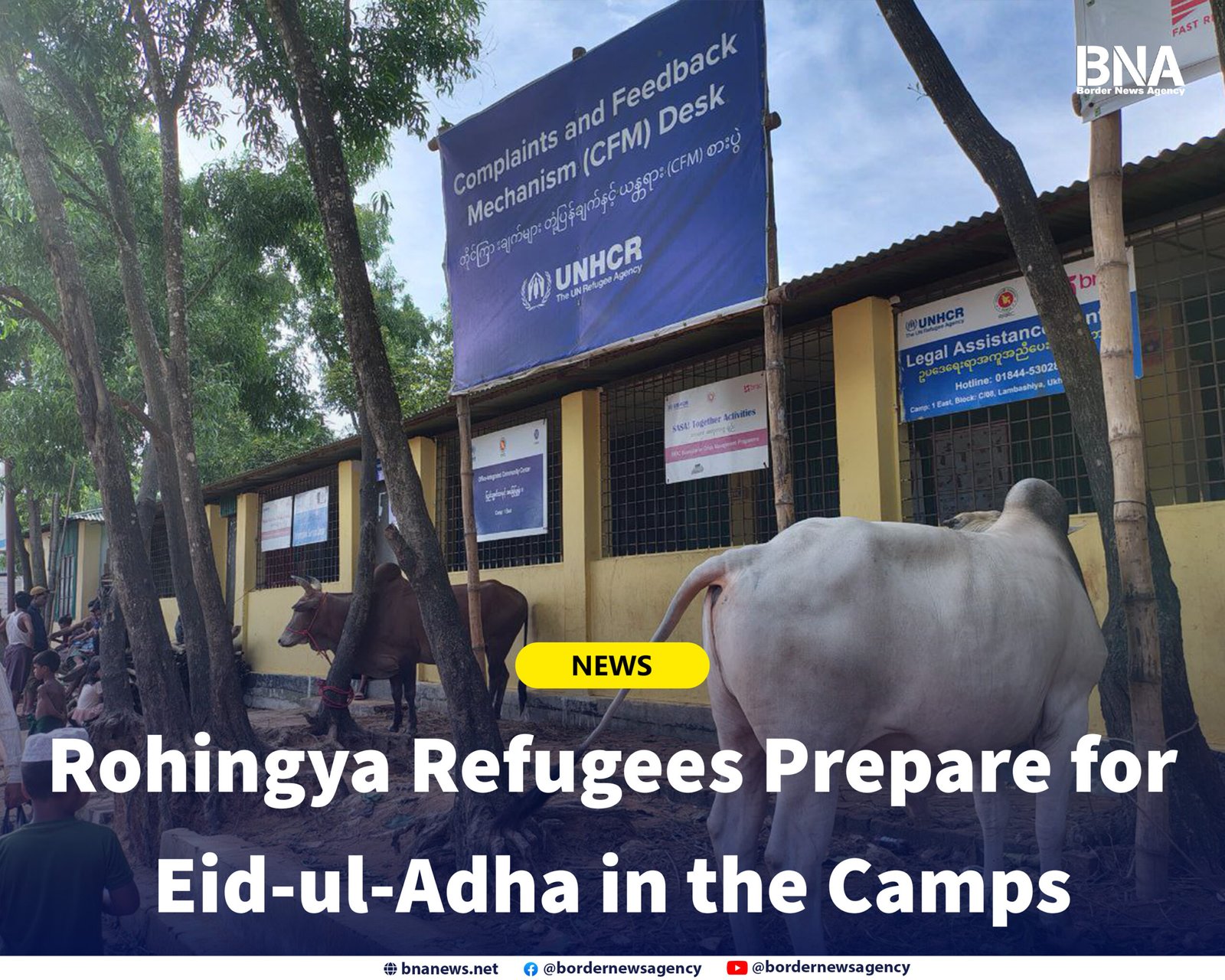Border News Agency
Cox’s Bazar, Bangladesh – June 6, 2025
As the sun rises over the sprawling Rohingya refugee camps in Cox’s Bazar, a sense of anticipation fills the air. Refugees are making preparations for Eid-ul-Adha, one of the holiest festivals in Islam, marked by the ritual sacrifice of animals to commemorate Prophet Ibrahim’s devotion.
In narrow alleyways and open spaces within the camps, groups of Rohingya men and boys gather around cows that have been brought in for the Qurbani (sacrifice), scheduled for tomorrow.
Despite living in challenging conditions and relying largely on humanitarian aid, many families have pooled resources or received support from charitable organizations to participate in the tradition. For many refugees, this is not just an act of faith but also an opportunity to share meat with their families and neighbors and a rare treat amid otherwise limited diets.
Women are busy preparing their homes and making sweets, while children watch the preparations with excitement. The camp, usually marked by the struggles of daily life, is momentarily filled with a spirit of community, resilience, and hope.
“We are far from our homeland, but this festival reminds us of our faith and unity,” says Noor Alam, a Rohingya refugee who has arranged to share a cow with three other families.
As Eid dawns tomorrow, the sacrifice will take place early in the morning, followed by prayers and the distribution of meat among families across the camp.






